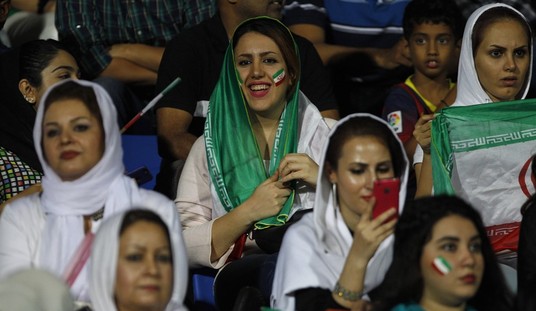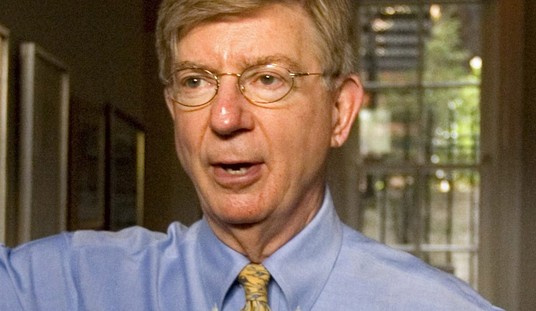Several weeks after Russia invaded Crimea and annexed the peninsula, the State Department says it has evidence of Russian support for the “destabilization” of Ukraine.
“On April 12, armed pro-Russian militants seized government buildings in a coordinated and professional operation conducted in six cities in eastern Ukraine. Many of the militants were outfitted in bullet-proof vests and camouflage uniforms with insignia removed and carrying Russian-origin weapons. These armed units, some wearing black and orange St. George’s ribbons associated with Russian Victory Day celebrations, have raised Russian and separatist flags over the buildings they seized, and called for referendums and union with Russia,” the department said in a note to media on Sunday.
“Even more so than the seizure of main government buildings in Ukrainian regional capitals Donetsk, Luhansk, and Kharkiv last weekend, these operations bear many similarities to those that were carried out in Crimea in late February and culminated in Russia’s illegal military intervention and purported annexation of Crimea. In the earlier Crimean case, highly organized, well-equipped, and professional forces wearing Russian military uniforms, balaclavas, and military gear without identifying insignia moved in first to take control of Crimean government and security facilities before being later replaced by regular Russian military forces.”
The State Department said simultaneous takeovers in Donetsk, Slavyansk, Krasnyi Liman, Kramatorsk, Chervonoarmiysk, and Druzhkovka are an indication that the April 12 operations were planned in advance.
“There are reports that additional attempts to seize buildings in other eastern Ukrainian towns failed. Inconsistent with political, grassroots protests, these seizures bear the same defining features and tactics across diverse locations, including takeover of government administration buildings and security headquarters, seizure of weapons in the targeted buildings, forced removal of local officials, rapid establishment of roadblocks and barricades, attacks against communications towers, and deployment of well-organized forces. In Slavyansk, armed units have now also moved beyond the seized buildings to establish roadblocks and checkpoints in the nearby area,” the note said.
“The Ukrainian Government has reporting indicating that Russian intelligence officers are directly involved in orchestrating the activities of pro-Russian armed resistance groups in eastern Ukraine. In addition, the Ukrainian Government detained an individual who said that he was recruited by the Russian security services and instructed to carry out subversive operations in eastern and southern Ukraine, including seizing administrative buildings. All of this evidence undercuts the Russian Government’s claims that Ukraine is on the brink of ‘civil war.’”
In a statement to European leaders last week, Russian President Vladimir Putin warned that Gazprom “is compelled to switch over to advance payment for gas deliveries, and in the event of further violation of the conditions of payment, will completely or partially cease gas deliveries.”
“In other words, only the volume of natural gas will be delivered to Ukraine as was paid for one month in advance of delivery,” Putin said. “Undoubtedly, this is an extreme measure… However, the fact that our European partners have unilaterally withdrawn from the concerted efforts to resolve the Ukrainian crisis, and even from holding consultations with the Russian side, leaves Russia no alternative.”
The State Department noted that the “events of April 12 strongly suggest that in eastern Ukraine Russia is now using the same tactics that it used in Crimea in order to foment separatism, undermine Ukrainian sovereignty, and exercise control over its neighbor in contravention of Russia’s obligations under international law.”
“In the face of these provocations, the legitimate government of Ukraine in Kyiv continues to show restraint and has only used force when public safety was at risk and attempts to resolve the situation through dialogue failed. Prime Minister Yatsenyuk was in the region on Friday, April 11, to discuss the central government’s willingness to work with regions on decentralization – including such issues as local elections, local control of budgets and finances and education, and enshrining Russian as an official language – in advance of the May 25 presidential elections.”









Join the conversation as a VIP Member